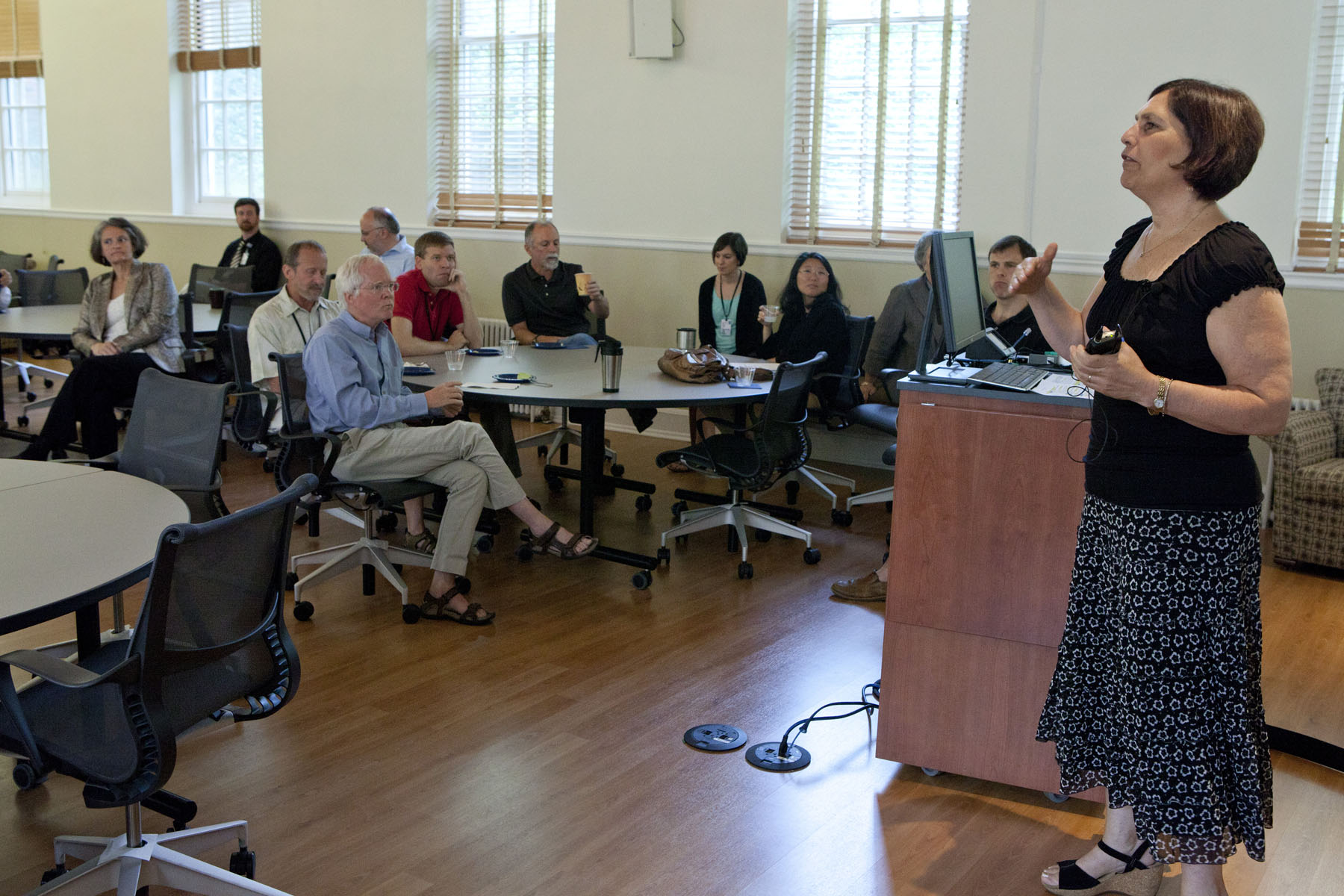The University of Virginia's School of Medicine is reinventing how biomedical sciences are taught, launching an innovative new curriculum designed to foster critical thinking, instill strong writing and speaking skills and give students the tools they need to become the outstanding scientists of tomorrow.
The overhauled curriculum, debuting this semester, represents a new model for teaching biomedical sciences at the graduate level, and follows a similar overhaul of the medical education curriculum in 2010. The faculty took a hard look at the previous biomedical science curriculum, distilled it to its essence, and then set out to tailor the program to student interests and the changing needs of science in the 21st century.
"As a faculty, we took a close look at our traditional approach to graduate education in the biomedical sciences and had some very spirited discussions," said Douglas DeSimone, a professor of cell biology who has played a key role in shaping the new curriculum. "We questioned how our graduate students are being trained and whether we could do a better job to prepare them for the challenges they will face as their careers unfold. We worked hard to define core concepts that all of us felt were important for our students to know.
"There's been a tremendous explosion in knowledge. The reality is, students can't know it all. None of us can. … So it's very important to start them out with a fundamental base of core knowledge. But it is equally important to develop the tools and skill sets they need to set out on a lifelong journey of learning and discovery that largely defines what it is to be a scientist."
Interactive Immersion
Instead of simply sitting through lectures, students in the rebuilt program will play an unprecedented role in their academic experience. All will go through an intense, 12-week core course that will both challenge them to hone vital skills and take responsibility for gaining essential knowledge.
One emphasis of this course will be scientific writing, which will then carry over into two additional required workshops that will focus on writing and the often-neglected art of rewriting.
"I think that we have not previously placed enough emphasis on writing, despite the fact that it so critical to being a productive scientist," said Amy H. Bouton, associate dean of Graduate and Medical Scientist Programs and one of the curriculum's main architects.
After completing the immersive core program, students will work together with three-person faculty teams to choose what to learn next, selecting from dozens of six-week courses – some entirely new – that will allow the students to devote their time at the School of Medicine to their interests, backgrounds and future careers.
"These modular courses are topical and we are going to be expecting a lot of higher-level thinking," Bouton said. "Our expectation is that the students will apply the tools that they will have learned in the core course to synthesize and integrate the most current knowledge in the field."
Those skills will be essential when students begin their original biomedical research, which remains a vital component of the program. They will work side-by-side with faculty who are both mentors and collaborators.
A Devoted Space
Much of the student experience will occur in the Biomedical Sciences Education Center, a freshly renovated space in McKim Hall. The center will act as a home base for the first-year students during the core course, serving as both a dynamic teaching environment and a place for them to study, prepare assignments, work through problem sets and "talk science."
Beyond the core course, this space will serve as a focal point for the community of students and scientists, providing a place to come together for formal seminars, thesis defenses, retreats and informal gatherings. This reflects the program's commitment to building relationships that will follow the students through their careers, and to helping them appreciate the importance of transcending traditional disciplinary boundaries.
"This space," DeSimone said of the center, "is symbolic of our change in curriculum. It is designed to provide students and faculty with a sense of community and new opportunities for interaction and collaboration."
Hard Work Ahead
The 42 students enrolled in the program this fall will be the first to experience the new curriculum. And they've been warned that the new approach will require far more of them than memorization and rote recitation.
"We interview every prospective graduate student prior to admitting them into our program," Bouton said. "I talked to each group who came to interview about the exciting changes that were being made to our graduate program and described our plans for the curriculum. And I told them, 'You will be working very hard. We will have high expectations of you. You, in turn, can expect of us that we will provide you with the tools and skill sets to become great scientists. If this sounds exciting to you, then this is the right place for you. But if you aren't ready to make the commitment to work hard and immerse yourself in your learning, then U.Va. is probably not the place for you.'"
Media Contact
Article Information
August 21, 2012
/content/school-medicine-debuts-innovative-biomedical-sciences-curriculum-fall

